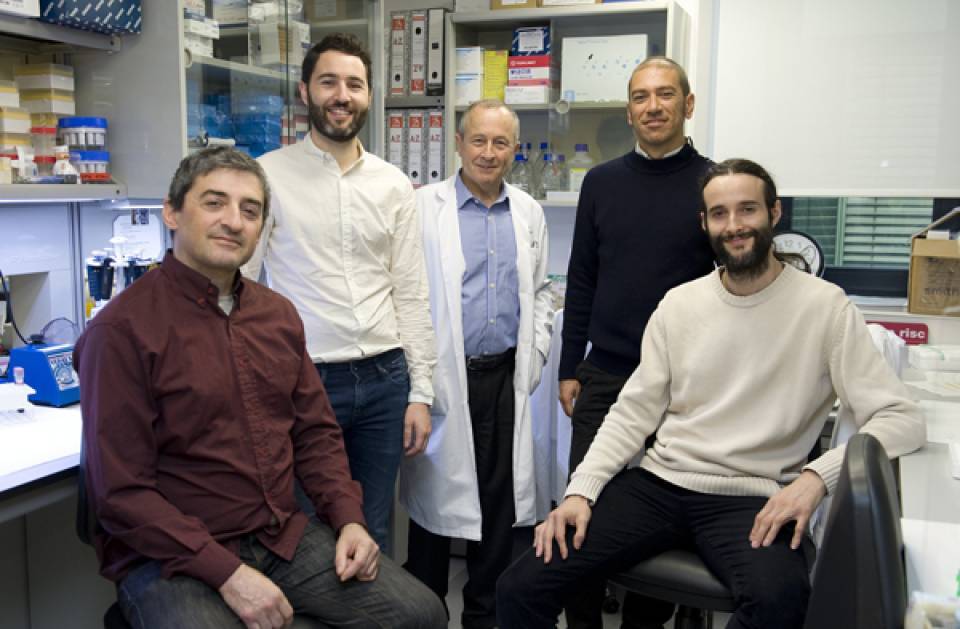The work has been coordinated by Dr. Rubén Fernández-Santiago and Dr. Mario Ezquerra, researchers at the Parkinson’s Disease and Movement Disorders IDIBAPS team, and is part of a collaborative CIBERNED project led by Dr. Eduardo Tolosa. Researchers with expertise in epigenetics, (Dr. Iñaki Martín-Subero, UB-IDIBAPS), regenerative medicine (Dra. Antonella Consiglio, Institute of Biomedicine of the University of Barcelona; Dr. Angel Raya Institute for Bioengineering of Catalonia) and neuroscience (Dr. Miquel Vila, Vall d'Hebron Research Institute) among others have also collaborated in this study.
Parkinson's disease is a neurodegenerative and multifactorial disease and little is known about the pathogenic mechanisms. This is partly due to the fact that dopaminergic neurons affected by the disease are in a deep brain region called the substantia nigra which is only accessible post-mortem after many years of illness and when most of these cells have degenerated.
In the study, researchers isolated somatic cells obtained from patients’ skin biopsies (fibroblasts) that were then reprogrammed into induced pluripotent stem cells (iPSC) and differentiated into dopaminergic neurons. After that they analyzed the transcriptome and epigenome of dopaminergic neurons and identified for the first time more than 2,000 epigenetic changes, and also gene expression changes, distributed throughout the genome of patients.
"These epigenetic alterations could have great importance in Parkinson's disease since the epigenome is the set of molecular mechanisms that allow activating or deactivating the expression of the genome," explains Dr. Santiago Fernández, first author of the article. In fact, researchers found that most epigenetic changes affect key regulatory regions called enhancers, that are associated to the lack of a network of transcription factors relevant in Parkinson. Moreover, the epigenetic alterations precede other molecular changes characteristic of the disease, previously described by the team in EMBO Molecular Medicine.
This is the first study to compare the epigenome of patients with sporadic Parkinson (90-95% of cases), and monogenic Parkinson associated with mutations in LRRK2 gene, discovering that the two forms share identical epigenetic alterations and that are different in healthy people. These results indicate that sporadic and monogenic forms of Parkinson's may share common mechanisms, at least from the epigenetic point of view, which opens the door to possible common treatments in the future.
The article also describes that epigenetic alterations detected in Parkinson are not present in fibroblasts, iPSC stem cells, or other types of neurons and are only evident after specific differentiation into dopaminergic neurons. These results suggest that Parkinson's disease may have a systemic profile and affect the entire organism, "ie, fibroblasts could have some sort of molecular defect, due in part to the individual’s environmental history and would only be pathogenic in dopaminergic neurons,” explains Dr. Ezquerra.
The study represents the first evidence that epigenetic changes are affecting dopaminergic neurons in Parkinson's disease, and the novelty of his results positions Spanish scientists in the emerging field of neurodegenerative diseases epigenetic research.
Article reference:
Aberrant epigenome in iPSC-derived dopaminergic neurons from Parkinson's disease patients.
Fernández-Santiago R, Carballo-Carbajal I, Castellano G, Torrent R, Richaud Y, Sánchez-Danés A, Vilarrasa-Blasi R, Sánchez-Pla A, Mosquera JL, Soriano J, López-Barneo J, Canals JM, Alberch J, Raya Á, Vila M, Consiglio A, Martín-Subero JI, Ezquerra M, Tolosa E.
EMBO Mol Med. 2015 Oct 29;7(12):1529-46. doi: 10.15252/emmm.201505439.
Animated abstract: http://embopress.org/video_EMM-2015-05439

